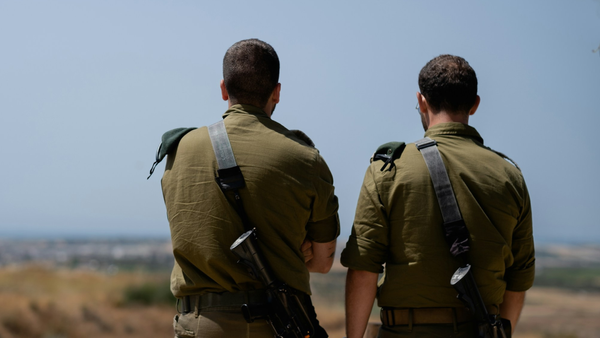
Are pregnancy and childbirth the most or least natural things we do? At the heart of Louisa Hall’s brainily visceral new novel is a reading of Mary Shelley’s Frankenstein as a book whose uncanny energy is forged in the crucible of reproduction. Pregnant, nauseous, fearful of miscarriage, Hall’s narrator fails in her attempt to write a novel about Shelley, in part because her insights about Shelley’s masterpiece have become too turbulent and revelatory. “How could she,” the narrator asks, “a creature who never had a mother, have observed such physical changes with anything other than terror? What am I? she must have wondered. What kind of creature is this?”
Hall is best known for her ambitious AI novel Speak (2015), which intertwines letters, diaries and court transcripts across several centuries to tell the tragic story of the rise and fall of a generation of intelligent, human-seeming dolls. She has now turned her attention inward, in this short, intricate work of autofiction about pregnancy and childbirth. But the preoccupations of Speak are still here: a thread about IVF introduces questions about the relationship between scientific overreaching and “natural” biology, darkened by an increasingly unnatural climate.
Hall’s narrator journeys through snowstorms from a happy, childless second marriage in New York to a new life in Montana dominated by pregnancy. There are three: the first results in an empty sac that has to be surgically removed; the second leads nauseously to an excruciatingly long live birth that the narrator experiences more as an act of destruction than creation, and results in haemorrhaging so severe that organs seem to be falling out of her body; the third is a molar pregnancy in which her body creates cancerous matter that kills the embryo – “my body, I realised, had eaten my child alive”.
In the midst of this bloody chaos, a beloved daughter is born, managing to suckle even while her mother bleeds away her insides. The whole process has been so alien that the baby seems to come from the moon: “Her brow was a burrow. And when she opened her mouth to cry: the darkness within it was an estuary, and behind it a river that tunnelled deep into her planet’s centre.” Joyfully, the narrator joins her there, looking down from her new happiness on a faraway, troubled Earth. As the baby becomes a more earthly toddler, brave in the playground, the particular combinations of separateness and togetherness of this phase of motherhood are caught with moving understatement.
Meanwhile, the narrator thinks about Shelley and avoids seeing her former friend Anna, whose efforts to have a baby alone by IVF provide an unnerving parallel with her own supposedly natural attempts at reproduction. Anna, a scientist genetically modifying mice embryos to make them Covid-resistant, goes through several punishing IVF cycles, until she has no more viable eggs and only a handful of substandard embryos. She has to decide whether to use her scientific skills on her own child. Increasingly desperate, she lectures the narrator on how inferior miscarriage is as a selection method. Doesn’t she owe it to herself and her baby to select the best embryos before implanting them? The two women come apart in their separate pain.
It’s Shelley who shows the narrator how closely related these experiences are. The book’s triumph is to reveal, brilliantly and with feeling, the uncanny peculiarity of pregnancy and childbirth, and to connect this to all that is unnatural and peculiar about our overheating planet, with pollution and global warming throwing hormones awry and overheating pregnant bodies. It’s the tussle with Frankenstein that reveals how high the stakes are.
The narrator’s gradual revelation is that if Shelley created a brilliant novel about the tragedy and unnaturalness of creaturely reproduction out of the heat of her own reproductive experience, we need such a novel for our times. This must be a novel that is itself a creature – “made of disparate parts, flesh and bone, blood lost in a haemorrhage, stitched-together old skin” – because the novel is in some sense always an act of reproductive technology.
It is just this novel that Hall creates, out of the disparate parts of bodily experience and medical disaster, seen in the larger context of a world becoming too polluted for “natural” life processes to flourish, which turns pregnancy into a political issue (the narrator is aware that the life-saving terminations she requires wouldn’t be available in some states). Through all this, as Shelley did, she writes the body with poetic clarity and beauty. “Our water,” the narrator says as her waters break. “No. Our body, our blood. Everything inside us might break, blow, burn against the bounds of us, flood over our shores.” This is life born of pain; life that may make us all into monsters of the kind Shelley incandescently brought into being. Hall’s achievement is to make these bleak revelations triumphantly on the side of life.
• Reproduction by Louisa Hall is published by Scribner (£14.99). To support the Guardian and Observer, order your copy at guardianbookshop.com. Delivery charges may apply.







